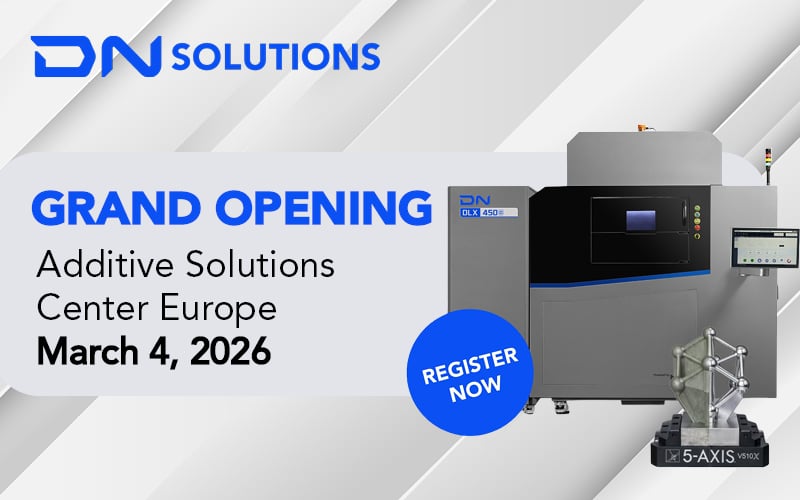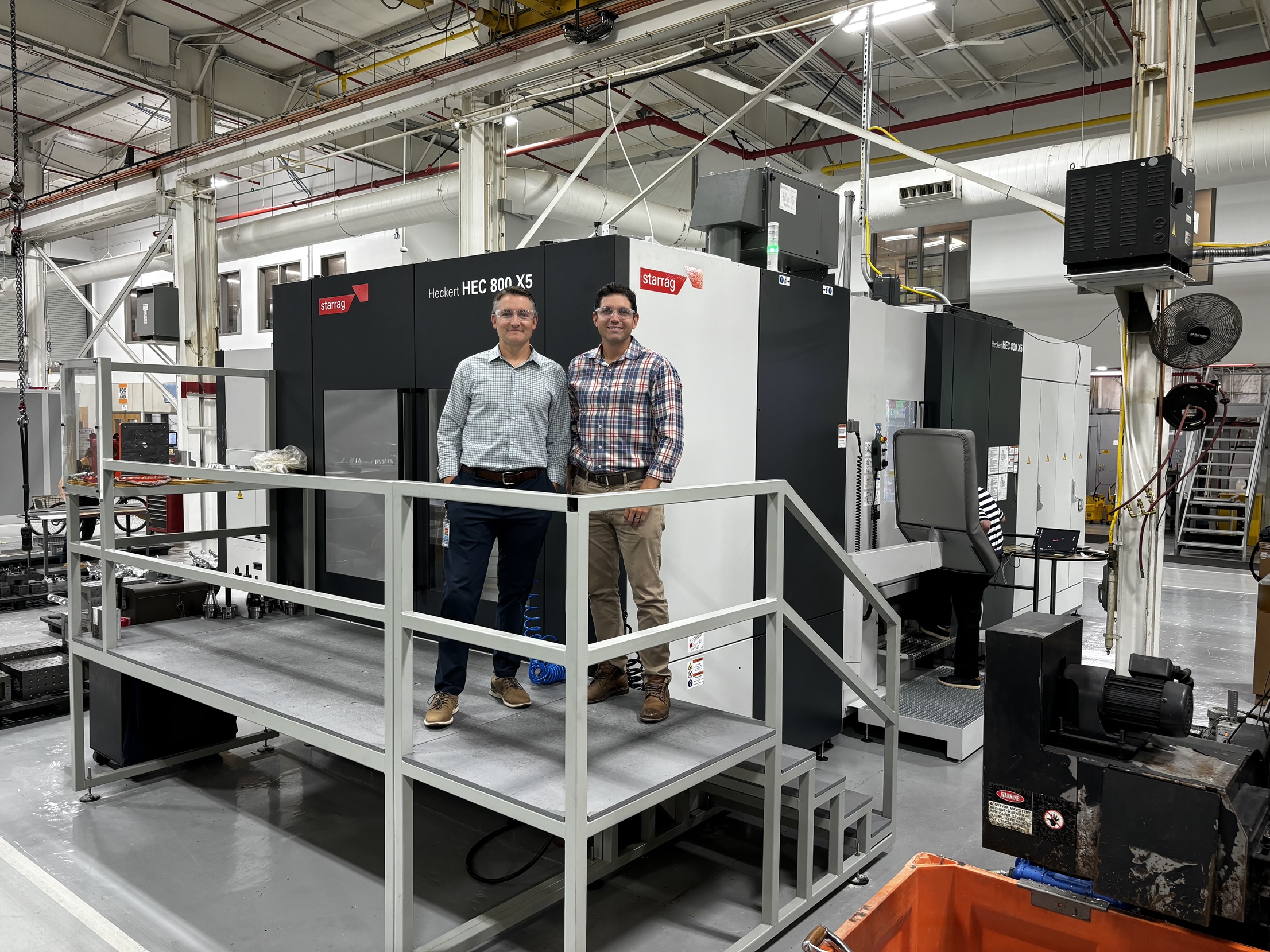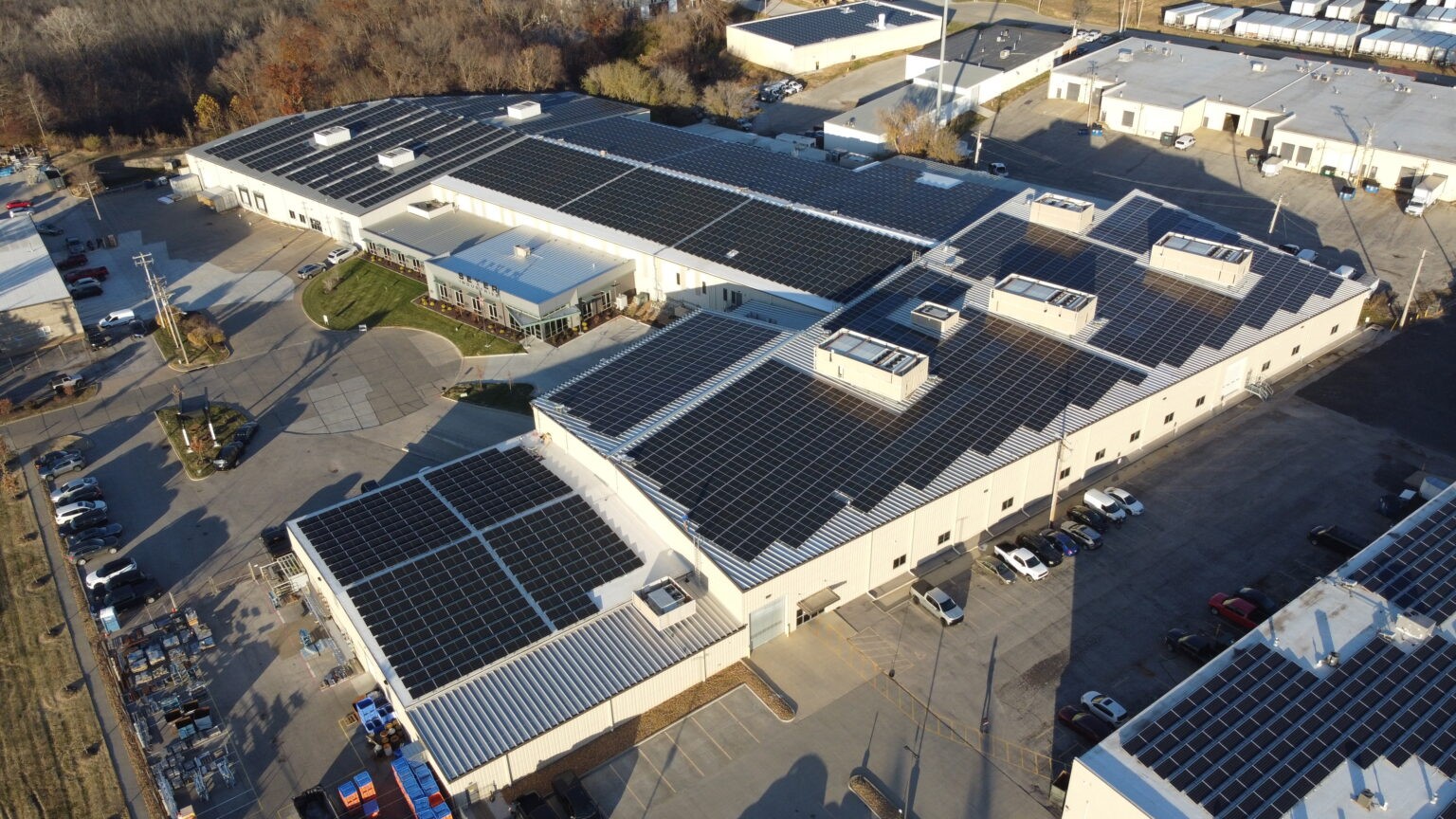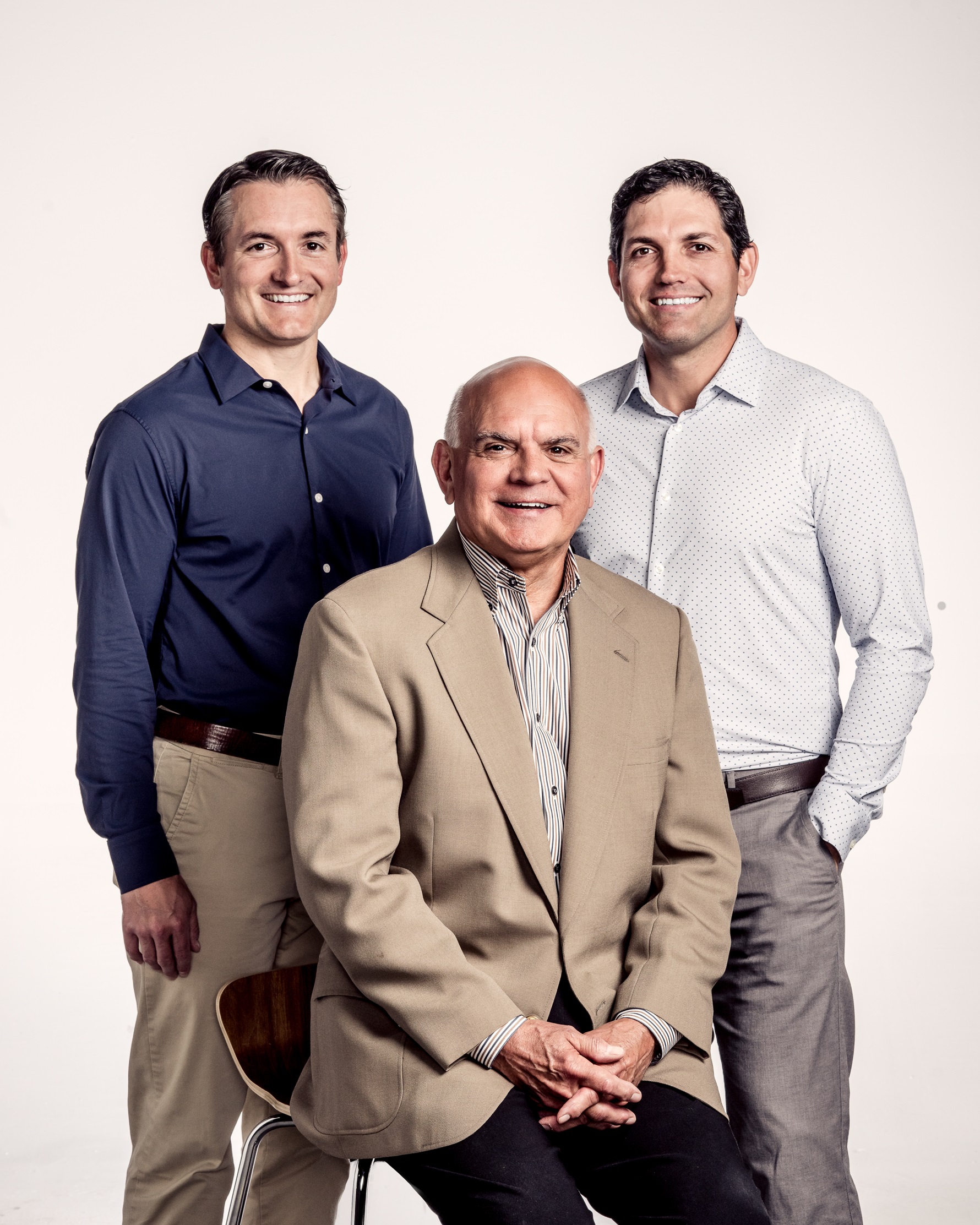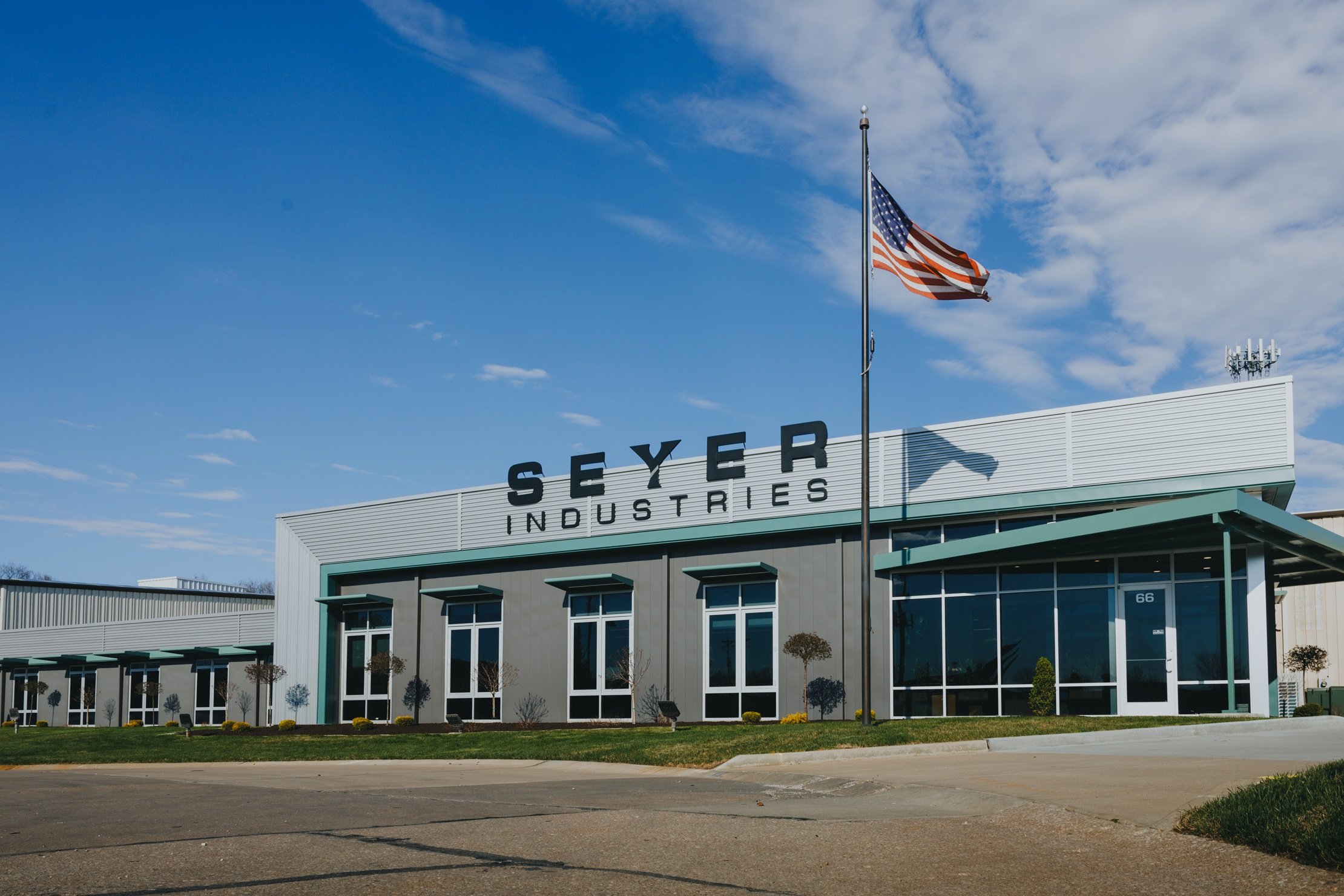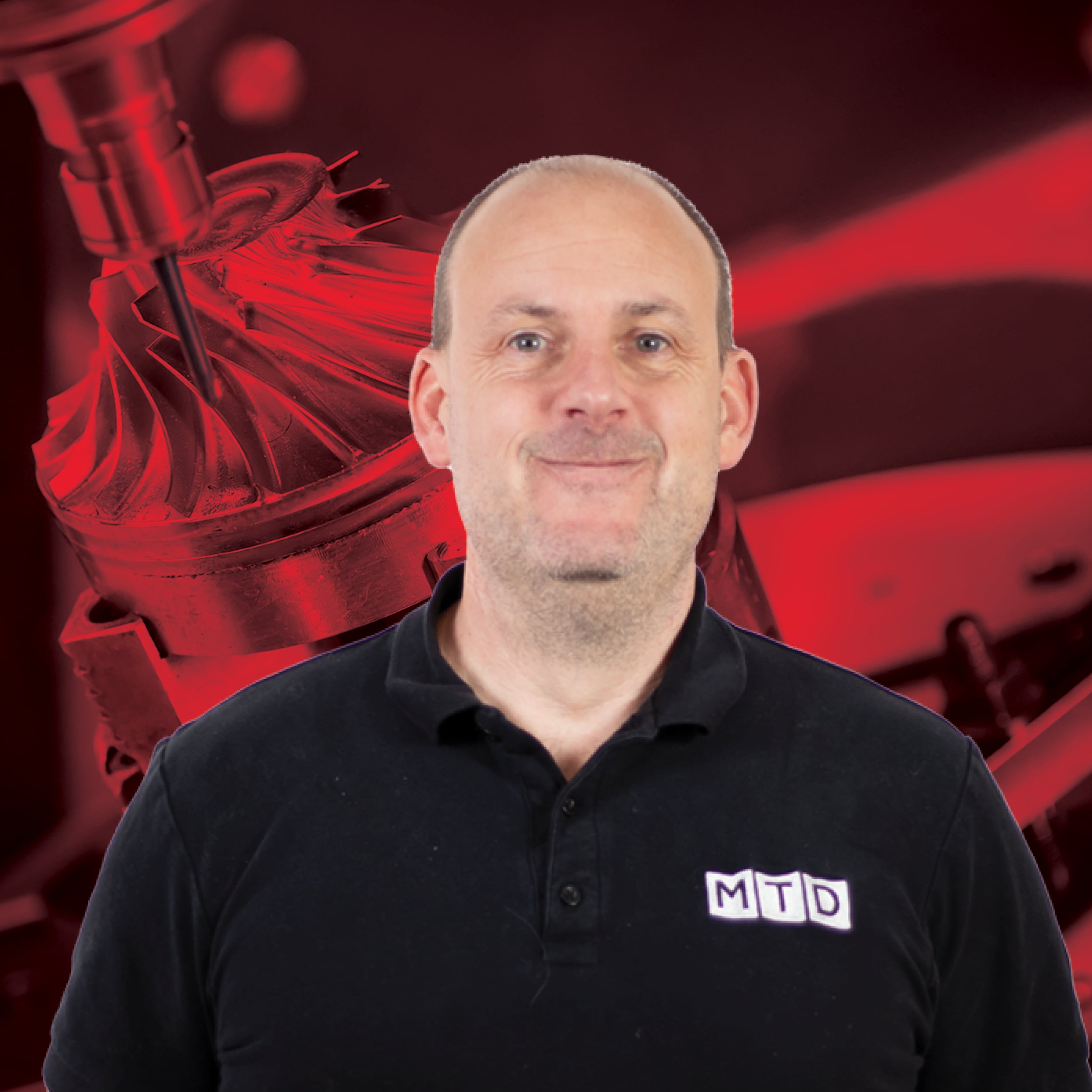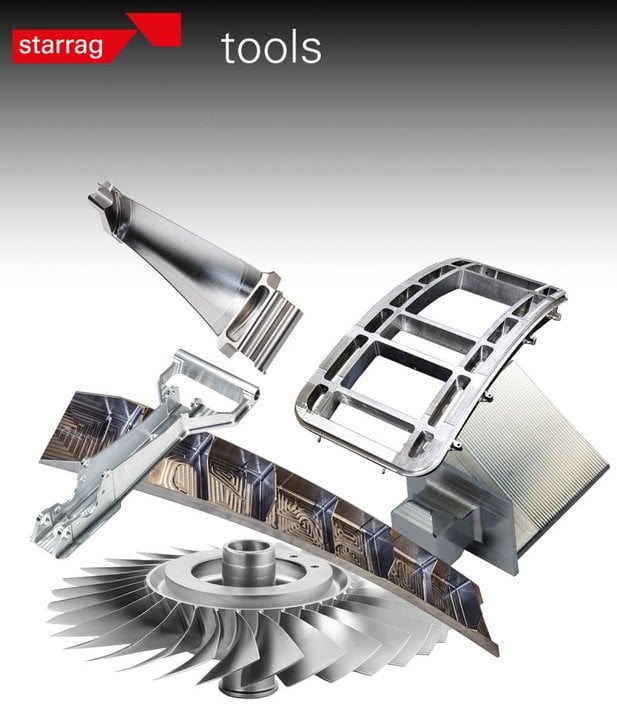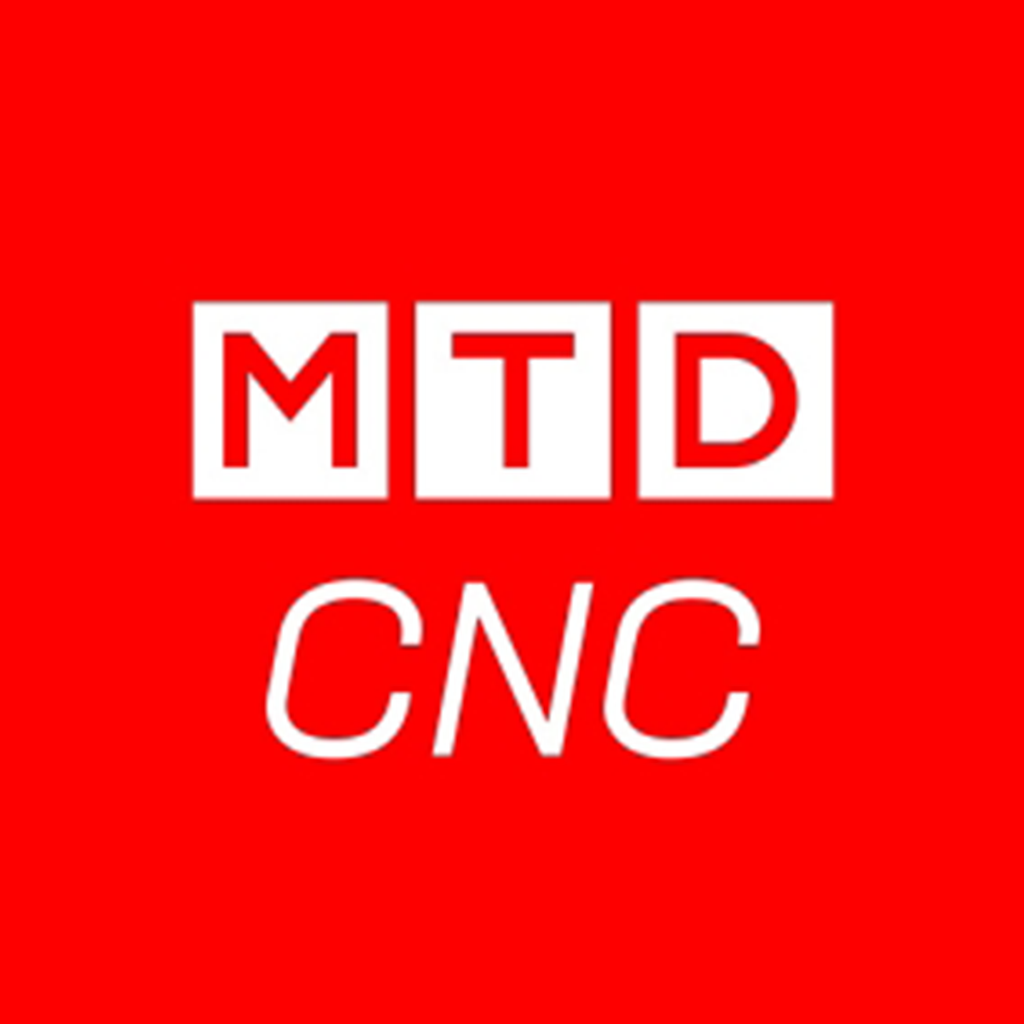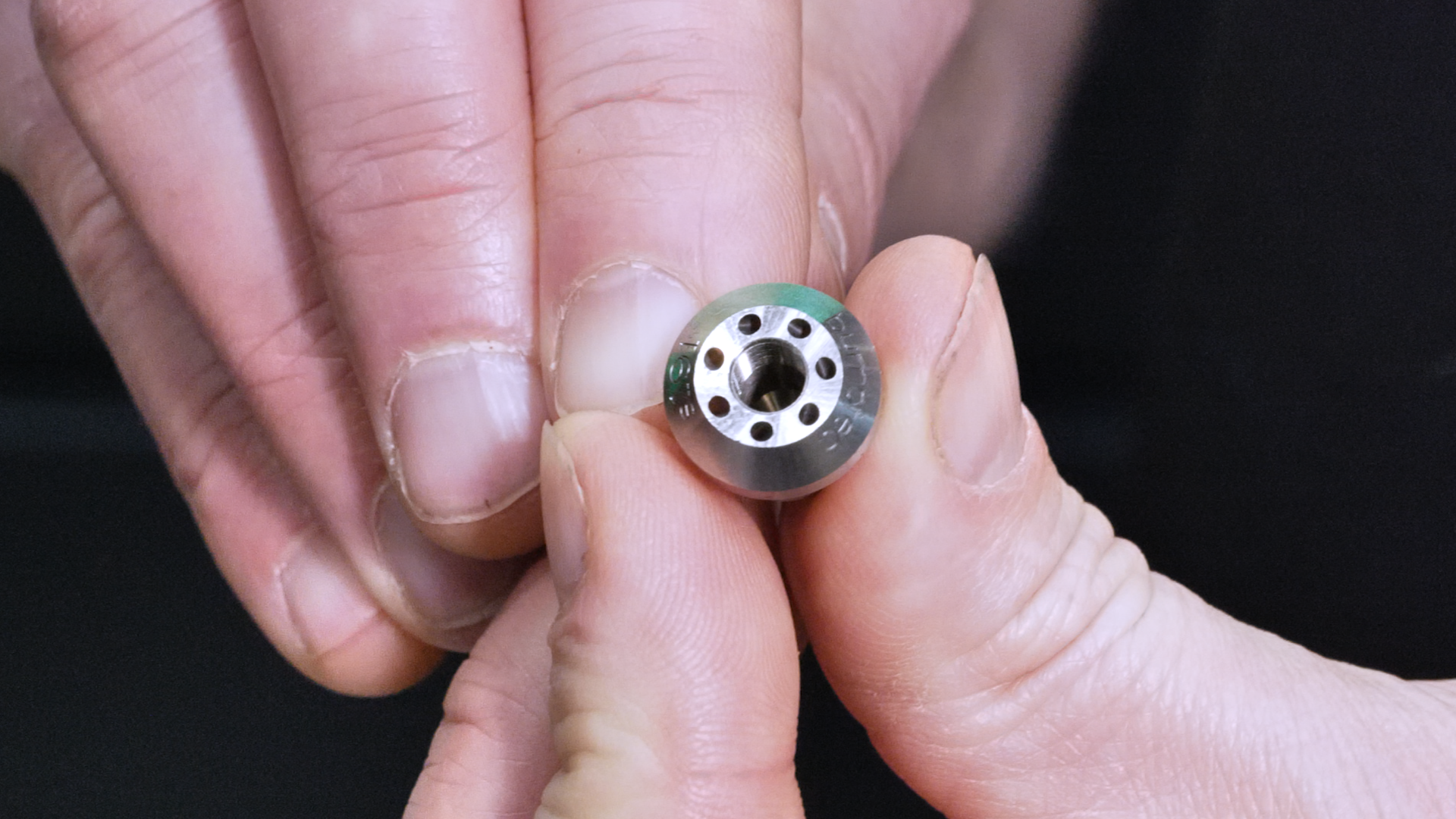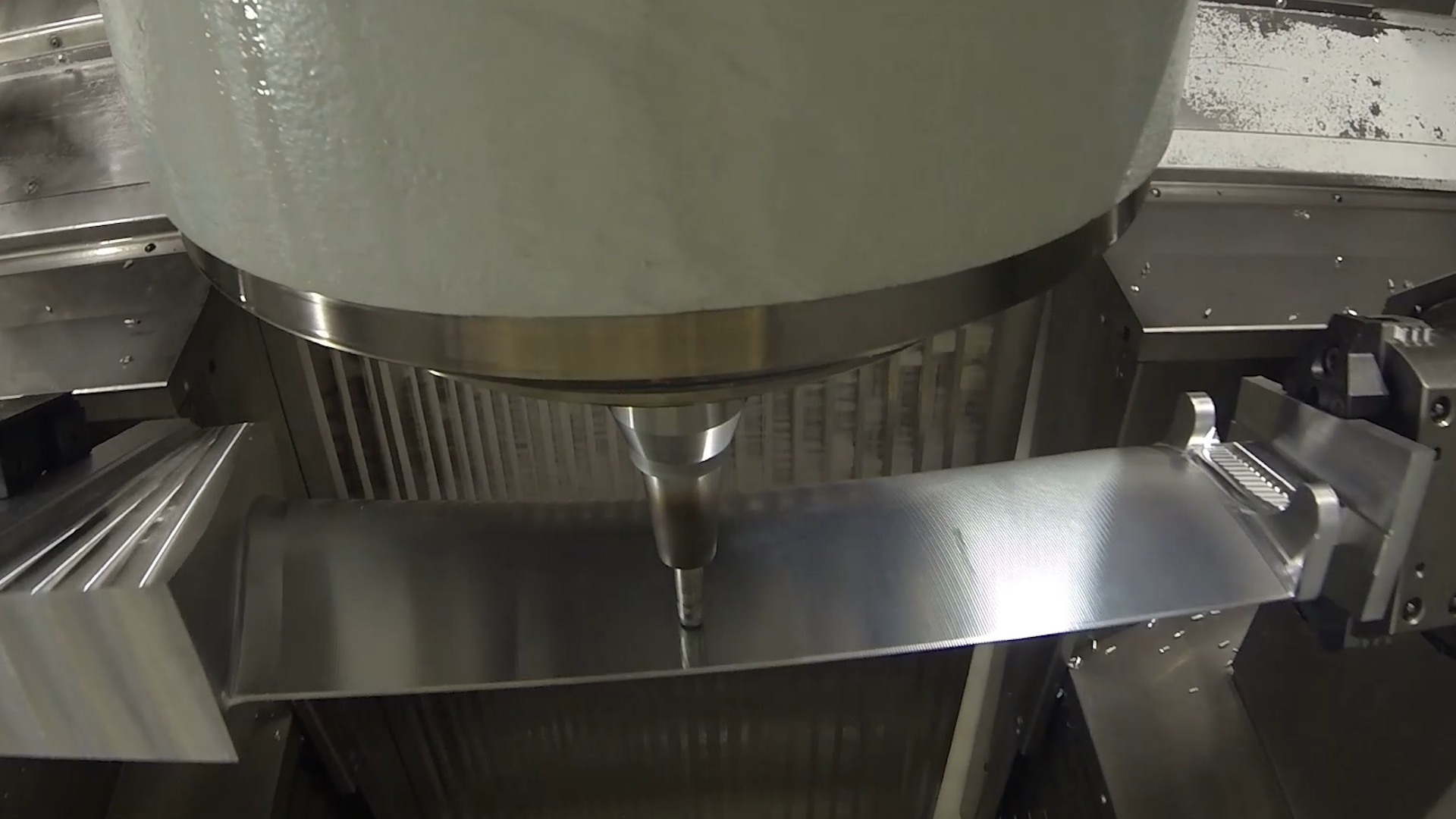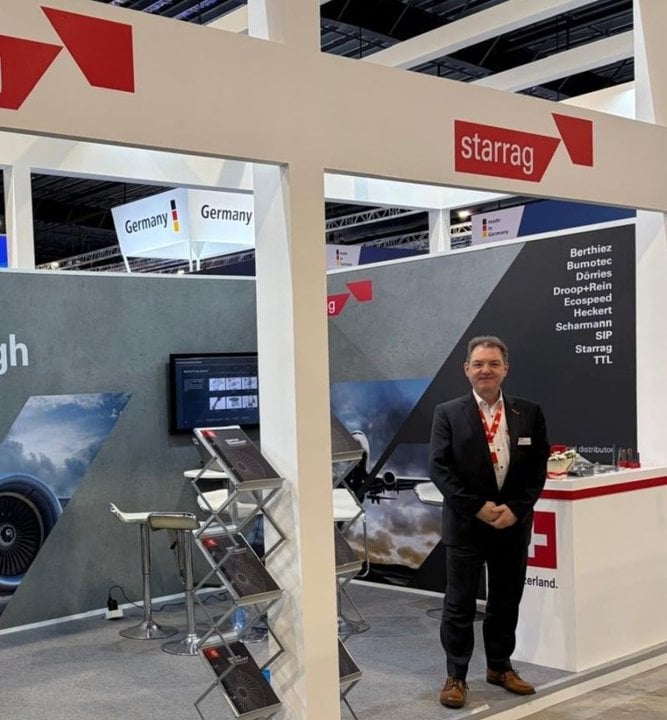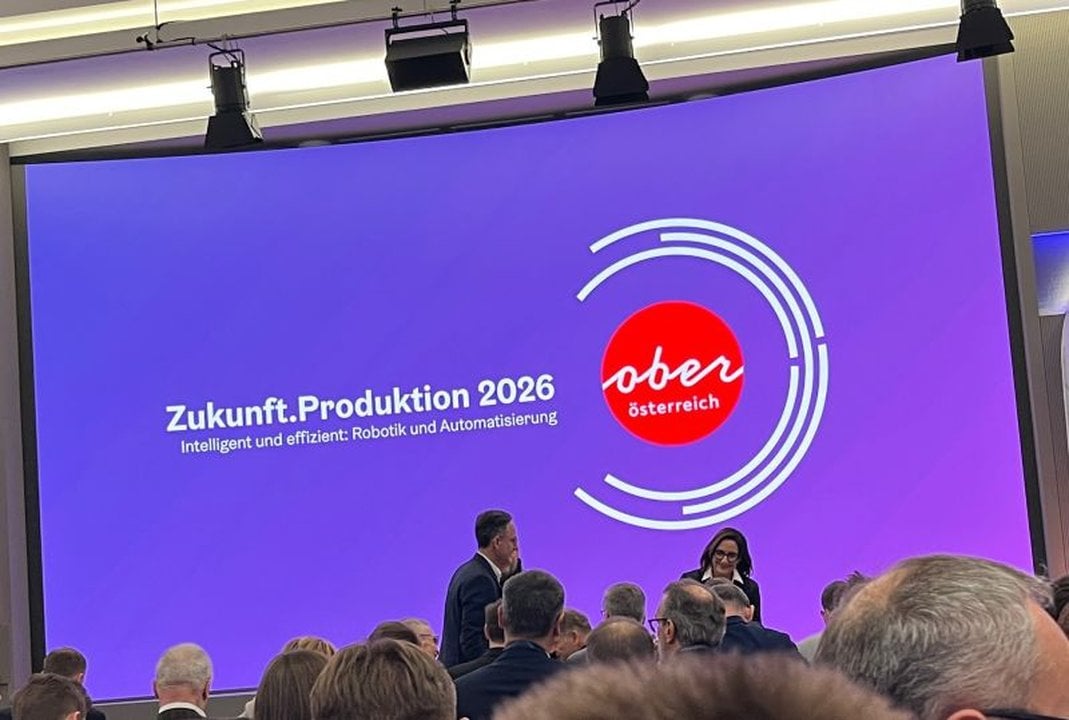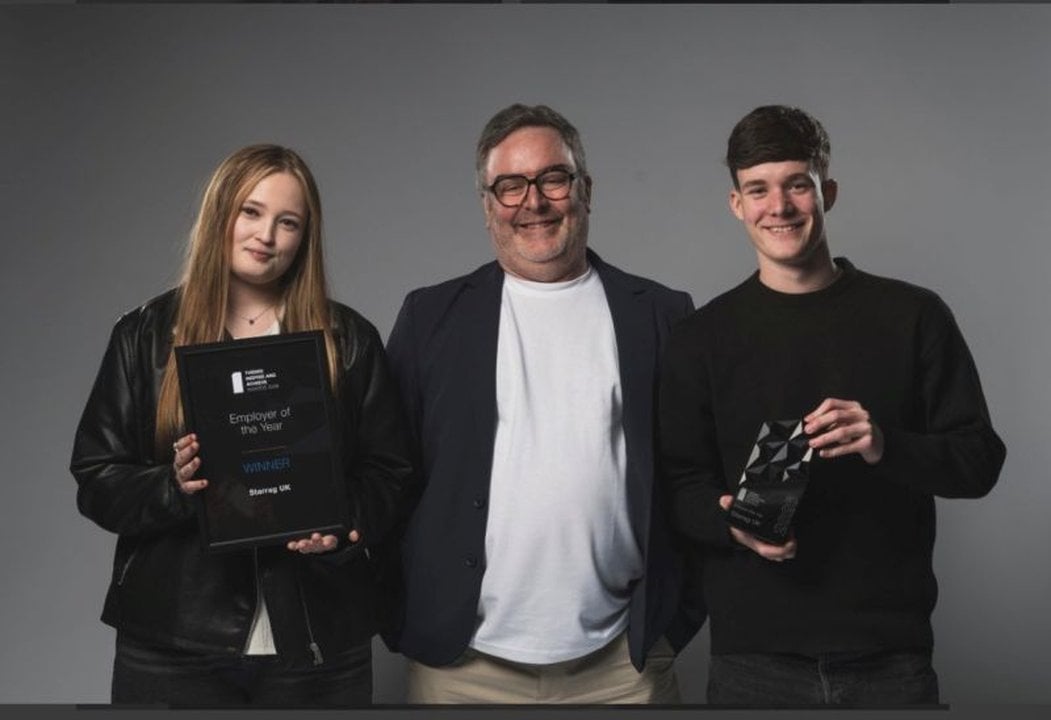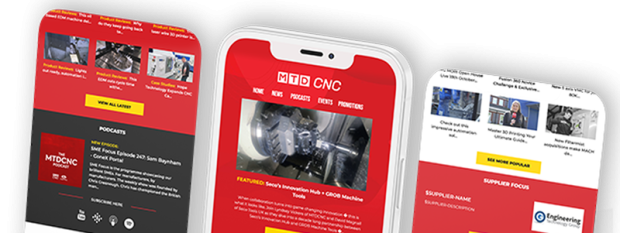
If there was ever a ‘cracking’ story of a company’s rise to prominence, you wouldn’t have to look much further than Seyer Industries. As a world-class manufacturer investing in machine tools from a world-leading brand like Starrag to manufacture critical aerospace components, growth at the Missouri-based manufacturer conceived in a farmer’s garage in 1957 is reaching boiling point.
It was self-taught tinkerer and inventor Lou Seyer who made enough money in the 1950s from his ‘Easy Egg Cracker’ invention for boiled eggs to partner with Harold Buckner and purchase machinery from a failing business. In the early 1980s, the company started manufacturing support equipment for the military as well as working on McDonnell Douglas Aircraft – the success has been exponential ever since.
Now, Seyer is a 3rd generation family-owned aerospace company that has developed into a world-class manufacturer with four primary product groups operating from a 210,000sq/ft facility. This includes supporting customers in the commercial aerospace, military aerospace, military support equipment and maritime industries. The investment strategy is proving so successful, the AS:9100D, ISO:9001, ITAR registered and NADCAP-certified company has grown 20% year over year for the last 5 years.
One impressive element of the company’s investment strategy is its 1.8MW solar panel system that generates over 30% of Seyer’s electricity needs. Covering three of its four buildings, the only reason the 4,216-panel installation doesn’t qualify as Missouri’s largest commercial solar-powered system is because it is spread over three buildings. Despite this, Seyer’s commitment to minimising its carbon footprint is admirable and exceeds the largest in-state installation of 4,085 panels on top of a globally renowned Swedish furniture store.
Discussing the company’s activities, Mark Seyer Director of Operations at Seyer Industries says: “Our mission is to be the best-in-class supplier of complex aerospace products. Seyer specialises in hard metal machining and deep bills of material. We offer great value through vertical integration and a high degree of collaboration with customers. As part of our efforts to take complex problems off our customers’ hands, we have built our process offering to support large, hard-material machined parts and assemblies. As price and lead time are everything in aerospace, adding the capability of large-capacity machining will help Seyer offer a complete partner solution for more of our customers. To achieve this, we have decided to invest in machine tools from Starrag.”
Starrag’s reputation as the world’s leading machine tool partner for the aerospace industry is beyond reproach. Working with most of the world’s aerospace primes and their supply chains, Starrag was the obvious choice for Seyer when it won a contract to manufacture defence industry components. With the project requiring the machining of hard metal parts with dimensions of 1m by 300mm by 300mm, the billets had to undergo high material removal machining with impeccable precision and surface finishes on the finished parts. The solution was the Starrag Heckert 800 X5.
The Heckert 800 X5 is a 5-axis horizontal machine with a trunnion design that delivers both the precision and rigidity required for Seyer to machine the hardest materials with high material removal rates. This is complemented by a powerful 12,500 rpm mechanical spindle that was specifically selected by Seyer to deliver the torque needed for milling hard aerospace grade alloys as well as the higher RPM and horsepower to machine softer materials. The pallet changer allows the operator to set up the next part while the machine is in operation. This ensures the spindle is always turning, maximising efficiency, output and minimising set-up idle times for Seyer. Set-ups and downtime are further minimised by a 180 position tool changer with temperature-controlled coolant, part probing and laser tool probing to deliver unparalleled process control and efficiency.
These features enable the new Heckert 800 X5 to run for prolonged periods unmanned whilst providing maximum productivity output with minimal operator intervention.
Commenting upon the relationship with Starrag, Mark Seyer from Seyer Industries adds: “Starrag comes with a great reputation of providing robust machines with top-notch accuracy and precision. There is no room for error with the parts we plan to produce on this machine. That is why we have partnered with Starrag. The exceptional build quality, rigidity, stability, performance and precision that is backed by Starrag’s excellent support network and technical experts will ensure we attain impeccable quality levels to exceed our customer expectations.”
“During the sales portion of our journey, Starrag sold itself as an ‘engineering company that manufactures machines.’ From contract negotiations through the build cycle of the machine, the Starrag Group has come through on their word and they have been fantastic to work with, especially regarding the customisation and design elements of the machine.”
Looking to the next step in evolution for this department at Seyer, the company has already committed to machine number two – a 6-axis Starrag STC1800-170 set to be delivered in the fall. Alluding to how the investment in Starrag machines will accelerate growth at Seyer, Mark Seyer continues: “With the next Starrag machine scheduled to be delivered in Q4 of 2024, we could not yet see the impact it will have on our business growth. However, when talking about this new capability, customers have shown great interest and they can’t wait to have a supplier with this capability. Based on customer feedback, we see a strong need in the industry for this capability.”
The 6-axis Starrag STC1800-170 has been purchased for manufacturing large titanium structural parts for the defence industry – and with a 3.3 by 2 by 2m capacity, the new Starrag STC1800-170 will add both capacity and capability that will give Seyer a huge competitive advantage. Discussing the parts lined up for machining on the STC1800-170 when it arrives, Mark Seyer continues: “We expect this machine to mainly process stainless steel, titanium, and Inconel structural aerospace components, typically in smaller batch sizes in the realm of 2 to 10 pieces.” To manufacture these challenging materials, Seyer has specified its STC1800-170, with a 70HP (53kW) mechanical spindle that boasts over 958ft/lbs (1300 Nm) of torque at 100% duty cycle with a spindle speed of 5,600rpm. The power of the HSK-A100 24spindle enables this machine to deliver class-leading material removal rates of beyond 50 cubic inches (800cm3/min) on titanium, giving Seyer the industry’s most robust and productive machine available for the aerospace sector. The quality and stability of this spindle are so assured, Starrag provides a 5-year warranty that can be extended to a decade – giving Seyer complete peace of mind.
Optimising flexible manufacturing, the 6-axis machine STC1800-170 selected by Seyer can handle very large parts and is equipped with a tilt station that allows the machining of parts in both the horizontal and vertical orientation, the STC1800-170 permits one-hit machining that will reduce set-ups and enhance component quality for the aerospace manufacturer. As expected with a brand that leads the way in the aerospace and defence industry, features such as automatic calibration and verification of machine kinematics, temperature-controlled coolant, probing reports, and extreme accuracy levels are standard on their Starrag machine. Furthermore, with Seyer recognising that hard metals require a large number of cutting tools, the manufacturer has chosen to equip their new STC with a 450-position automatic tool changer with an RFID system and tool verification laser for unsurpassed process control.
Highlighting the attributes of the Starrag brand and how it fits with the demands that family-run Seyer Industries places on its machines, Mark Seyer adds: “Precision and repeatability are key components that we focus on when selecting a machine. Depending on the gap we are trying to fill, spindle selection, envelope size, tool capacity and automation abilities can be other areas of interest.”
“With automation becoming more and more the norm, high tool capacity and data gathering are a must. Offline programming, setup and quick-changeovers are also required to ensure the machine is fully utilised. Intuitive and maintainable controls that allow our skilled machinists, programmers and engineers to get optimal performance from the machine across the diverse products we produce are also a necessity. In summary, we need a highly flexible solution that is intuitive to operate with the highest degree of accuracy and repeatability.”
Specifically looking at the Starrag STC1800-170 that is awaiting installation and how its attributes matched the needs of Seyer, Mark Seyer concludes: “This machine has been selected because of the need for a high material removal rate while maintaining accuracy, precision and reliability. Two other items that stood out during the selection process were Starrag’s commitment to service and minimising downtime events due to maintenance or equipment failure. Another important factor was their ability to customise the machine to meet our exact needs.”

